
Break Past Simple, Simple Past Tense of Break Past Participle, V1 V2 V3
Infinitive: to break Gerund: breaking Past participle: broken Simple past: broke Irregular forms Auxilliary verb Spelling change Use contractions. Positive Negative. Indicative. Positive Negative. Present. I break I break: you break you break: he/she/it breaks he/she/it breaks: we break we break: they break they break:

Unbreak Past Tense Verb Forms, Conjugate UNBREAK
The simple past tense of "break" is "broke." This form is used to talk about past events that are completed. Here are some examples: I broke my arm while playing football.

Past Tense for Break Breaked, Broke or Brake? (Pronunciation & Usage)
The past simple and the past participle of break. Conjugation of the verb break: Base Form/Infinitive without 'to': break. Past Simple: broke. Past Partciple: broken. Present Partciple: breaking. Third Person Singular: breaks. Definition: 1. To separate into two or more pieces. 2. To cause someone to lose spirit or will.

What did you do on Summer Break? using past simple tense English ESL
1 not attempted What is the base form of the verb "to break"? A. breaks B. breaking C. break 2 not attempted The present participle of "to break" is __________

Break Past Simple форма
Translations for "to break" in our English dictionaries. 'to break' conjugation - English verbs conjugated in all tenses with the bab.la verb conjugator.

Irregular Verbs IRREGULAR VERBS PRESENT PAST SIMPLE PAST PARTICIPLE
Past Simple Past Participle Gerund ; break: broke: broken: breaking [breɪk] [brəʊk] [ˈbrəʊkən] [ˈbreɪkɪŋ] [breɪk] [brəʊk] [ˈbrəʊk(ə)n] [ˈbreɪkɪŋ] Trainer Settings. Break into pronouns . Shuffle cards . Nominal forms . Past Simple Past Participle Gerund. Simple tense .
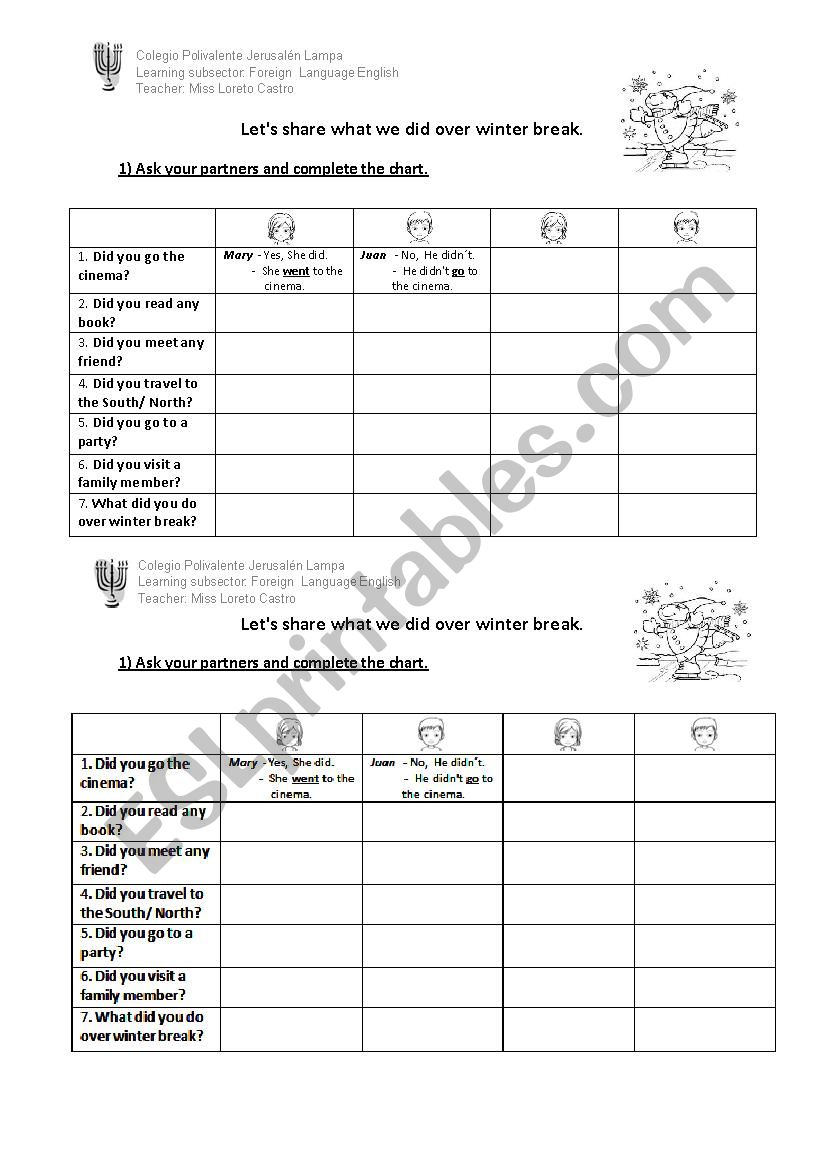
Winter break ( past simple) ESL worksheet by Ladylore
past participle: (to) break breaking broken definition in Spanish in French in Italian Indicative Perfect tenses Continuous (progressive) and emphatic tenses Compound continuous (progressive) tenses
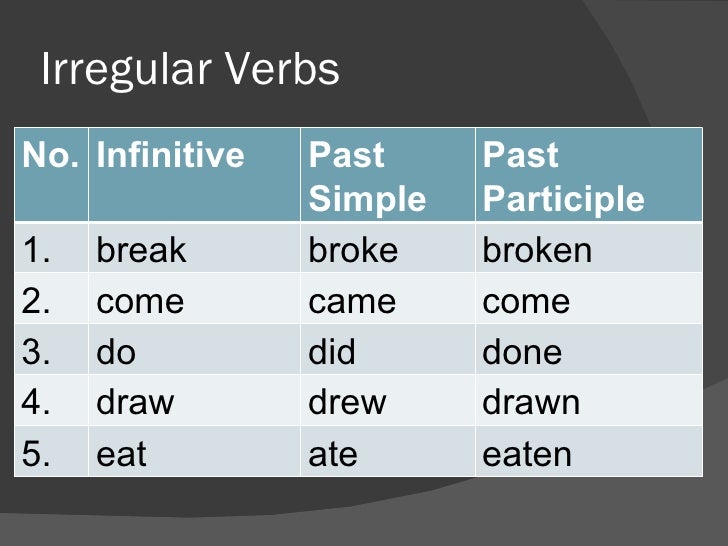
Present Perfect Tense
Conjugation of break - English verb | PONS Verb Table for break Continuous tenses Conditional Imperative Impersonal Simple tenses Present Past Present Perfect Past Perfect Will -Future Going to -Future Future Perfect Return to the dictionary Top of page Found an error? We appreciate your feedback. Click here! Continuous tenses Present Past
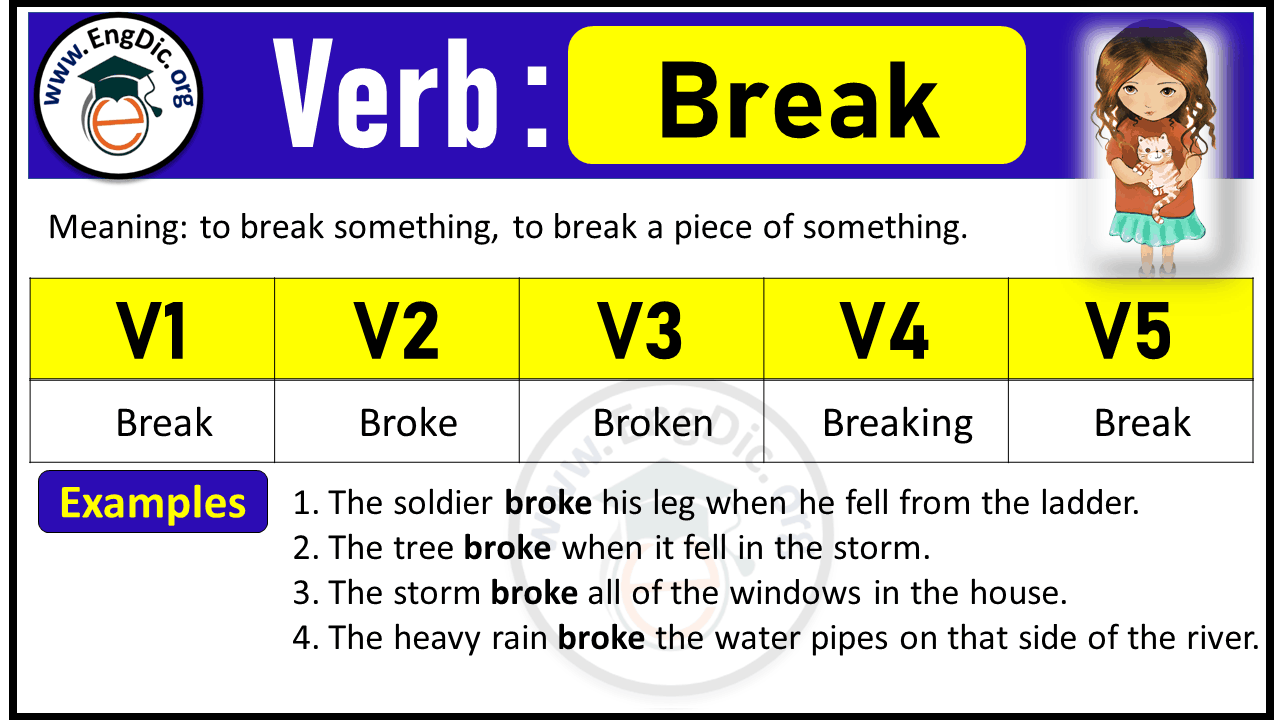
Break past participle Archives EngDic
Get example sentences of the verb break in all tenses and in both the active and passive voice with a follow-up quiz to test your knowledge.. Base Form break / Past Simple broke / Past Participle broken / Gerund breaking. Present Simple . Some glass breaks easily. Present Simple Passive . This toy is often broken by children.
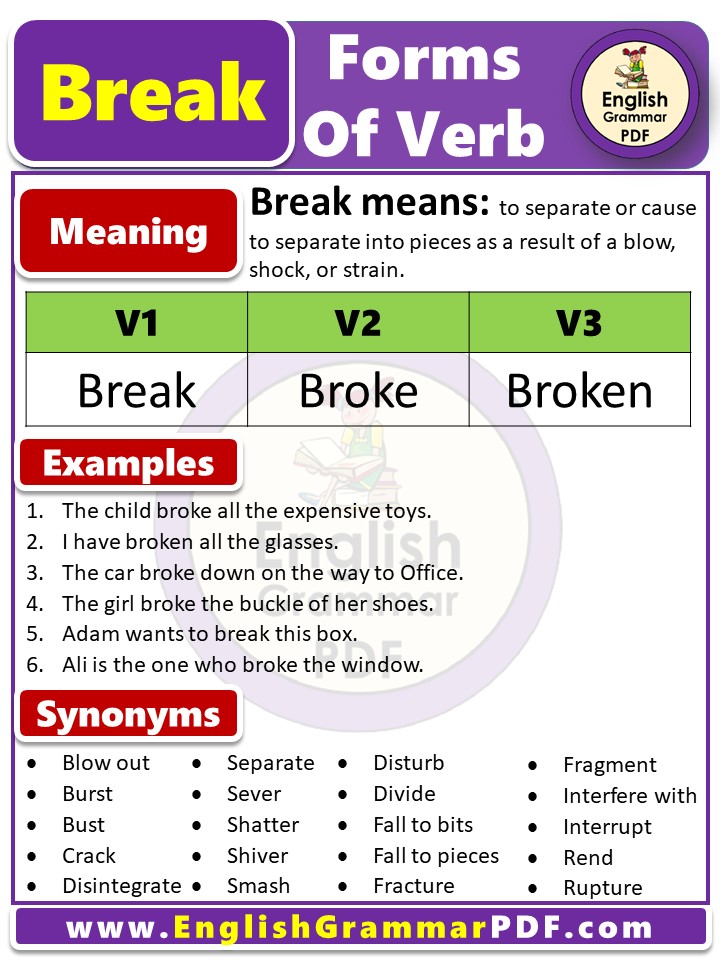
Crítico Realmente harto break past simple lanza Guerrero Clip mariposa
break: Present Continuous "break" I : am breaking: Simple past "break" I : broke; brake: Past Continuous "break" I : was breaking: Present perfect "break" I : have broken: Present perfect continuous "break" I : have been breaking: Past perfect "break" I : had broken: Past perfect continuous "break" I : had been breaking: Future "break" I : will.

Our Easter break ;past simple regula… English ESL worksheets pdf & doc
Past simple Past simple Level: beginner With most verbs, the past tense is formed by adding -ed: called liked wanted worked But there are a lot of irregular past tense forms in English. Here are the most common irregular verbs in English, with their past tense forms: We use the past tense to talk about: something that happened once in the past:

Simple Past Tense Formula EnglishTeachoo
It is an essential verb to learn as it is frequently used in everyday communication. In this section, we will discuss the different forms of the past tense of the verb 'break.' Simple Past Tense. The simple past tense of 'break' is 'broke.' It is used to describe an action that happened in the past and is now complete. Here are some.

Past Tense Of Mean, Past Participle Form of Mean, Mean Meant Meant V1
Learn the three forms of the English verb 'break'. the first form (V1) is 'break' used in present simple and future simple tenses. the second form (V2) is 'broke', 'broke' used in past simple tense. the third form (V3) is 'broken' used in present perfect and past perfect tenses.

Past Break YouTube
The past simple tense (sometimes called preterite, simple past or past indefinite) is the basic form of the past tense. This is one of the most common past tenses and can describe a lot of events. It is really important to know how and when to use this tense for daily conversation. But there are a lot of irregular past tense forms in English.
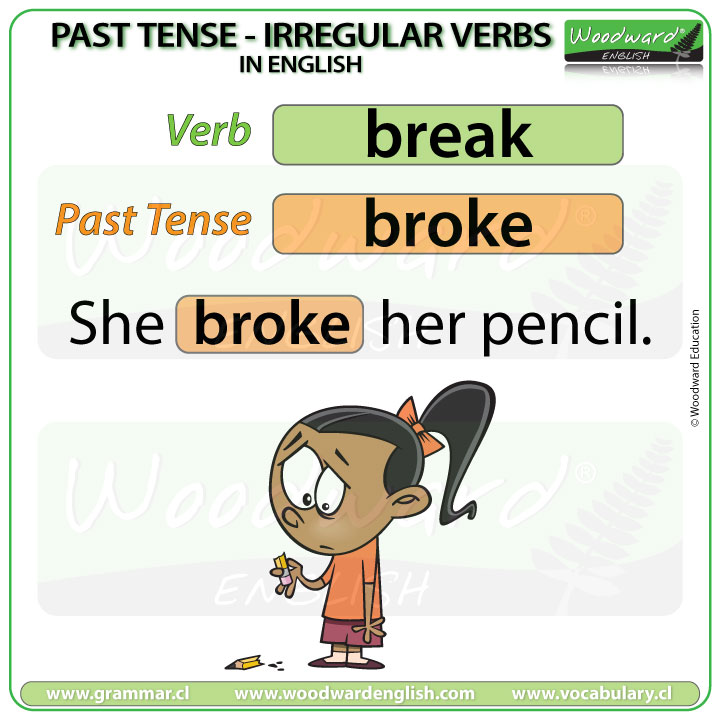
Crítico Realmente harto break past simple lanza Guerrero Clip mariposa
English Toolbox: Models British vs. American English Auxiliaries, modals Irregular verbs break Infinitive to break Preterite broke Past participle broken Model : break Auxiliary : have, be Other forms: break oneself / not break Contractions Advertising Indicative Present I break you break he/she/it breaks we break you break they break Preterite
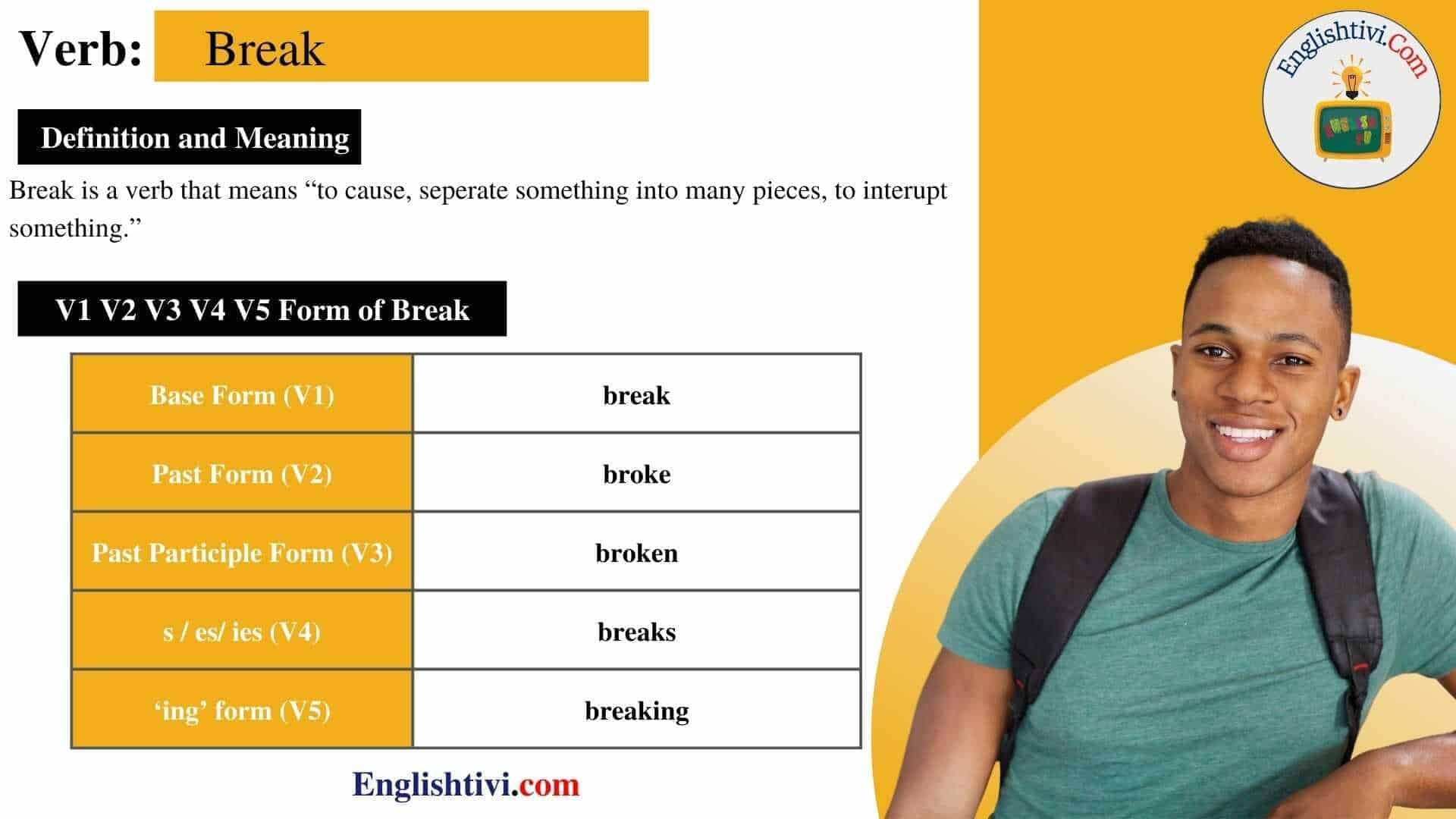
Break V1 V2 V3 V4 V5 Base Form, Past Simple, Past Participle Form of
On the other hand, "broke" and "brake" are the correct answers regarding the simple past form of "break". Yet, the former is more wide-reaching, and the latter is just archaic. What Is The Past Participle Of Break? As stated above, "break" is "broken" in the past-participle form.